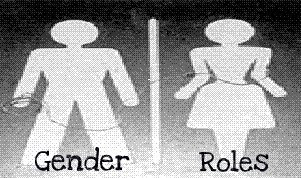
Considering the relationship pairs I reflected on, the sexes of these characters differ in modes of life and perception because they belong to different periods of time. But we see that for a very long time women were not treated equally and had no rights over men. Men were the ones who had power and women had to pleasure them, and for example, in Othello and Desdemona's time, there were harsh punishments for every flaw that was made. In the three relationship pairs of characters, the men treated their wives like if they were their property, which is essentialist of them, having the instincts that they have the control.
In my opinion, gender roles have confronted in all of the plays we have read this semester because of how the male characters treated the female characters. For example, in "Trifles" by Susan Glaspell, we see that women were oppressed by men when the two female characters were paying attention to the "trifles", or little things with no meaning; but the men loose control of the mystery when the women find in those "trifles" the solution of the conflict.
Even though Othello doesn't treat Desdemona without respect in "Othello, The Moor of Venice" by Shakespeare, it show's us at the end how Othello doesn't trust his wife and kills her for her "flaw", later knowing she didn't commit it. Desdemona treats Othello like if he was her king, she is essentialist because she thinks that since she is a woman she should pleasure Othello and should do anything he says; she never tries to face him and defend herself.
In "A Doll's House" by Henrik Ibsen, there are the gender differences of Torvald and Nora. It is sharply shown that Torvald treats Nora like if she was his property and even calls her nicknames comparing her to animals, demonstrating his power over her and the animal names meaning low control or power over things.
In "Two Can Play" by Trevor Rhone, there is the case of Jim and Gloria. Jim is very demanding and thinks he can control Gloria. He believes that Gloria is a woman and should therefore do what he tells her to. The gender differences in this play are very noticed in their conversations and the words Jim uses to talk to Gloria.
We have to recognize women's and men's perspectives and I don't think it's easy to transform them because they have the constructiveness of society's mindset and one person cannot change gender perceptions against the whole society. In the actuality, we still perceive the conflict of gender stereotypes, but they are less seen than in ancient times. We have to accept that in reality and in most cases, men will believe that they have the power over women, since they are considered stronger and women more delicate.

No comments:
Post a Comment